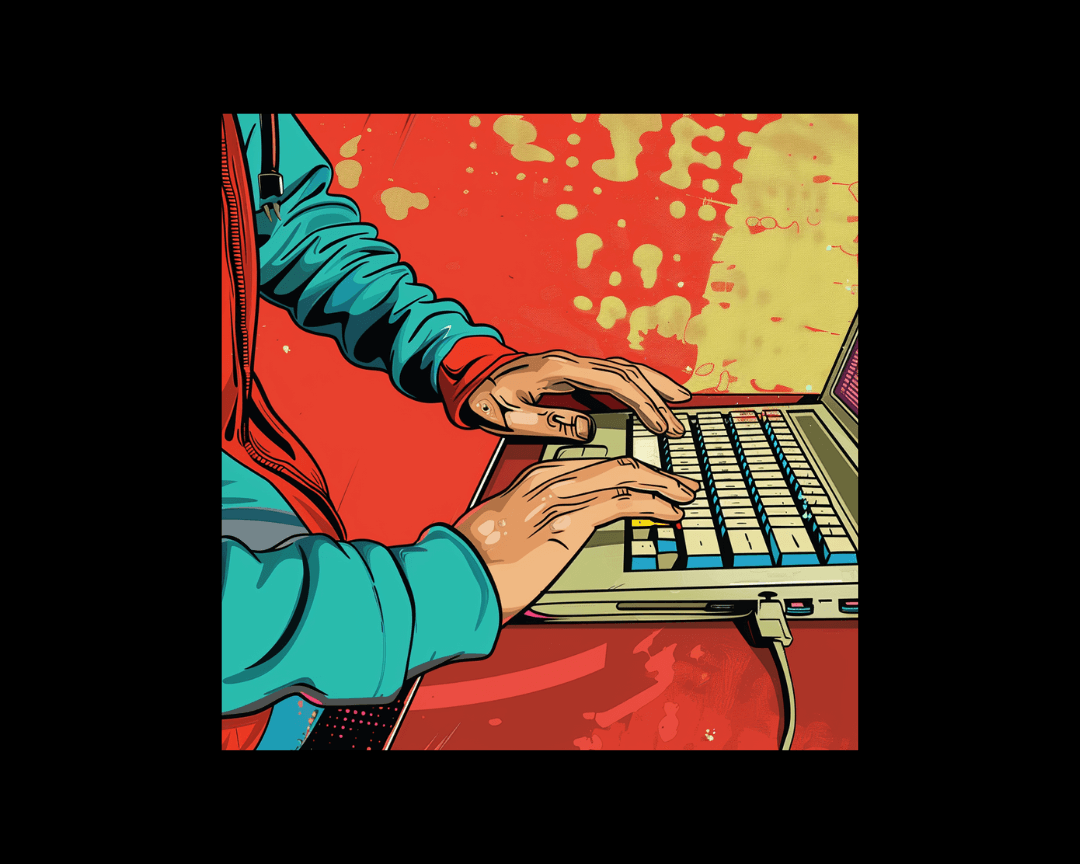Writers and Vision Boards: Visualize Success
Attention all you writers, dreamers, and goal-chasers out there! Listen up because we're about to dive into the wonderful world of vision boards and...

It's time to talk about the elephant in the room, the one thing holding you back from unleashing your inner creative genius: resistance.
(Well, that and writer’s block.)
But fear not, my fellow word warriors, because today, we will arm you with the tools you need to kick resistance to the curb and claim your rightful place as the literary badass you were born to be.
First things first, let's define this sneaky little bugger. As author Steven Pressfield so aptly puts it in his book "The War of Art," resistance is the antimuse. That nagging feeling stops you dead in your tracks when you try to put pen to paper. It's a toxic cocktail of doubt, dread, and sometimes even inexplicable indifference. In short, it's the ultimate writing roadblock and lives rent-free in your mind.
But here's the thing: at its core, resistance is nothing more than fear in disguise. It's what happens when you want something so badly, something you know will bring immense value to your life, but you're too afraid to go after it. When resistance rears its ugly head, the fear of taking a risk outweighs the potential reward.
For writers, that reward is the ultimate creative fulfillment, the joy of bringing a story to life and sharing it with the world. But the risks? Oh, they run the gamut.
Writing demands a huge investment of time and energy, and there's no guarantee that you'll be able to translate the vision in your head onto the page. And then there's the terrifying prospect of sharing your work with others, opening yourself up to criticism, rejection, and maybe even judgment from the people you care about most.
It's no wonder resistance has a field day with writers' creative desires, including yours. When faced with all those scary possibilities, your willpower looks at the dangers of pursuing the writing life and decides that a Netflix binge on the couch is a much safer bet.
So, how do you beat resistance at its own game? Well, I've got some good news and some bad news. The bad news is that, as Steven Pressfield says, "The amateur believes he must first overcome his fear; then he can do his work. The professional knows that fear can never be overcome. He knows there is no such thing as a fearless warrior or a dread-free artist."
In other words, you can't defeat fear. It will always lurk in the shadows, waiting to pounce. But the good news? You don't have to let it win. Overcoming resistance isn't about being fearless; it's about being brave. It's about picking up that pen and doing the work, even when every fiber of your being is telling you to run for the hills.
Choosing bravery isn't easy, but if you're sick and tired of letting fear call the shots, it's the only choice that makes sense. You'll know you've reached that point when you can't stand the sight of another unfinished manuscript gathering dust in your drawer, or when you're done second-guessing every word you've ever written, or when you're ready to scream if you waste one more day doing anything but writing.
More than that, you'll know you're ready to choose bravery when you're willing to fight tooth and nail for the creative fulfillment you deserve. Does that sound like you? Then, it's time to go to battle with the enemy within.
The key to gaining the upper hand against resistance is cultivating a healthy, creative mindset, prioritizing bravery over fear. The first step in doing that is learning how to defend yourself against resistance's weapon of choice: doubt.
Now, I know what you're thinking. "But wait, isn't doubt the enemy of creativity?" Nope, not even close. Doubt is a neutral force that simply highlights potential issues or uncertainties in the form of questions. Things like:
See, doubt isn't inherently bad. It's just shining a light on the fact that there are some things you're unsure about, and that's normal. As a writer, you'll never have a foolproof way to critique your work or predict the future, so it's natural to question the quality of your writing and the potential success of your projects.
The problem isn't a doubt; it's how you respond to it. And that's where the state of your creative mindset comes into play.
The healthiest way to deal with doubt is to take action. When you acknowledge the uncertainty surrounding a particular issue, you can start brainstorming ways to resolve it as much as possible.
Let's say you're worried that a specific line in your latest chapter isn't as polished or precise as you'd like. You can rearrange the sentence structure, play with different word choices, or even ask a trusted friend to take a look and offer some constructive feedback.
Or maybe you're stressing about whether your book will sell once published. In that case, you can start researching book launch strategies, learning about effective marketing techniques, and connecting with other authors who have successfully navigated the publication process.
The next time you sit down to write, keep a notebook handy. As doubts start creeping in (and they will), jot them down. Then, when you're done writing for the day, take a few minutes to review your list of doubts and brainstorm some concrete actions you can take to address them. If you're unsure where to start, try Googling your specific concern or contacting a fellow writer for advice.
When deciding which doubt to tackle first, you've got options. You can either go after the one that's having the most significant impact on your writing life right now, or you can knock out a bunch of more minor, easily resolved doubts to give your creative mindset some much-needed relief.
If you come up with multiple ways to address a particular doubt, simply choose the action that makes the most sense for your situation. For example, if you're unsure whether you've fully developed one of your characters, you could study characterization techniques or ask a beta reader for their honest opinion.
If you're pretty clueless about characterization in general, doing some research can help you gain valuable insights. But if you're more concerned about how well your character is coming across on the page, getting feedback from a fresh set of eyes is probably your best bet.
Of course, taking action isn't always easy. But when you don't take action, the alternative is getting sucked into a vortex of fear, stagnation, and self-loathing. And resistance knows this all too well.
Identifying your limiting beliefs can be tricky, so start paying closer attention to your self-talk. Whenever you catch yourself engaging in negative thinking, write down the limiting belief that's running through your head. Then, come up with a truthful statement that disproves it. Rinse and repeat as often as necessary.
It can help to keep a dedicated notebook or note-taking app for this purpose and actually speak your affirmations out loud to reinforce their truth. The more you practice this, the more aware you'll become of your limiting beliefs and the easier it will be to reject them outright.
Eventually, you'll start to recognize resistance's attempts to twist your doubts into limiting beliefs right off the bat. When that happens, remember: doubt is not the enemy. Doubt is just uncertainty, and the best way to deal with uncertainty is to take action to resolve it whenever possible.
By choosing truth over limiting beliefs and taking consistent action in the face of doubt, you'll build a creative mindset strong enough to withstand resistance attacks. You'll begin to see writing as a source of deep personal fulfillment and develop the courage to keep showing up and doing the work daily.
In other words, you'll take the first step toward becoming the writer you've always dreamed of being. And that, my friend, is a beautiful thing.

Attention all you writers, dreamers, and goal-chasers out there! Listen up because we're about to dive into the wonderful world of vision boards and...

It's time to flip the script on how writers approach their craft. For far too long, the writing community has been stuck in a rut of self-doubt,...

Alright, folks, listen up! If you've got something important to say and want to make a splash in the opinion pages, it's time to learn how to write a...